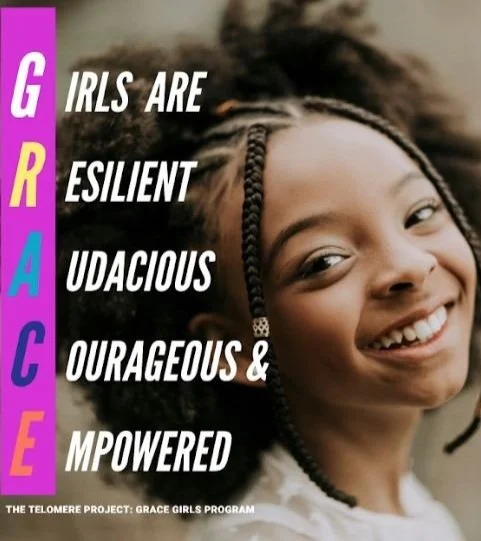Grace Teacher’s guide
-
The GRACE advisory enables GRACE Guides to implement workshops and activities with small groups of girls who would benefit from care-informed advisory and enrichment opportunities.
The program teaches adults about the research on the adultification of African American and Hispanic girls utilizing the core research of Dr. Monique Morris’ Pushout: The Criminalization of Black Girls in Schools and REACH resident clinical psychologist Dr. Jeffrey Gardere.
The program also includes a book study guide for GRACE Guides and a curriculum with activities to implement with 4th-12th grade girls. The school leadership will learn to juxtapose this program with other full—school implementations such as The Telomere Project: Care-Informed Classroom Program, Restorative Justice, Second Step, and other programs.
-
According to the American Psychological Association (2020), learning strategies for preventing or addressing the adultification of school-aged children can help address childhood depression, anxiety, lack of trust, substance abuse, inability to trust others, compulsive overworking, and other psychological effects. Addressing this issue and providing girls with appropriate and timely support can help develop strong but healthy work ethics, resiliency, and self-efficacy.
-
The lessons are aligned with the best practices of culturally responsive teaching. Culturally responsive teaching is based on the three pillars of culturally relevant pedagogy, introduced by scholar Dr. Gloria Ladson-Billings in the 1990s. The framework was designed to help educators advance excellence and underperforming students.
Our learning environments welcome and value students' unique strengths and skills.
Our lessons allow students to demonstrate skills and empower them to learn new skill sets.
Our lesson plans are designed with students in mind. We engage the students' voices in each session activity.
We encourage students to express themselves fully. We immerse students in the experience by engaging the five senses: feeling, taste, touch, sight, and sound.
We make inquiry, discovery, and discussion a practice by which students share their perspectives and experiences to deepen and foster new knowledge.


